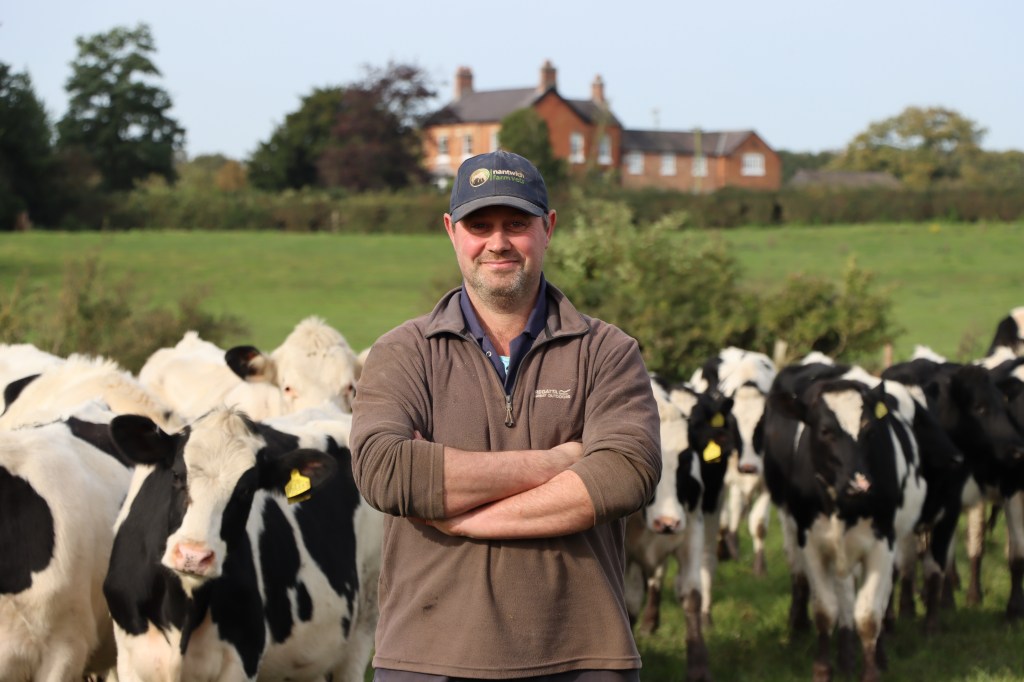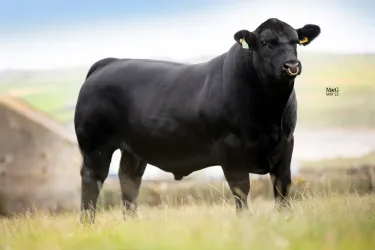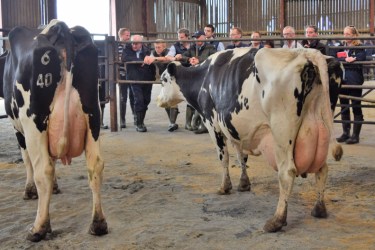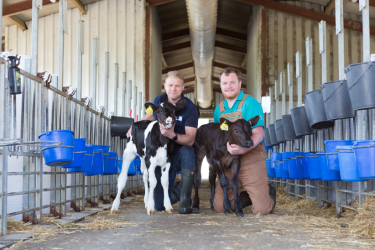Rookery Farm, based in Cheshire, is operated by the Symms family who manage a 210-cow herd alongside 150 followers.
Determined to improve their herd for both type and production, Stuart Symms and his parents turned to Genus ABS’ Genetic Management System® (GMS) about five years ago. GMS is an innovative mating program designed with the producer’s unique, personal goals in mind.
GMS offers sound, unbiased mating selections based on production, health and type traits, so that producers can breed longer-lasting, profitable cows.
Stuart has found that GMS has helped to drive the farm’s KPIs which continue to improve with each breeding cycle.
Breeding to meet personal goals
Stuart and his Breeding Advisor, Trevor Stapleton, have a great working relationship. When discussing how easy GMS is to use, Stuart said: “It’s very simple, I ring Trevor, ask him to run the cows with the agreed bulls and that’s it. It’s back to me within 10 minutes and all I have to do is give him the range of dates of birth for the maiden heifers!”
When it comes to breeding, they have a strong emphasis on the physical features of the cow, including rump and chest width, legs and locomotion, and calving ease score. While they do also consider SCC, lameness and TB scores, they value physical attributes more in order to produce easy to manage animals.
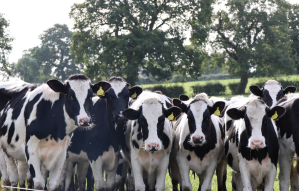
Breeding for fat and protein with GMS
The Symms family like to keep feed simple with grazing outside when possible. Instead of introducing more complex diets to encourage milk production and solids, they focus more on the genetic traits of the bulls they breed from to do the same job.
The Symms’ Holstein herd sees an average of 8900 litres of milk produced, with 4.15% fat and 3.4% protein. The animals are milked twice per day in their Herringbone parlour and all produce is sold to Tesco Sustainability Dairy Group (TSDG.)
TSDG do not give fat and protein bonuses but do penalise those who fail to hit targets. Because of this, Stuart incorporates fat and protein into his breeding strategy so that the herd has a high base level through genetics.
Previously, the herd was falling below average for both fat and protein, but due to efforts taken by the family, they are now positive once again. This has had a great impact on the genetics of the herd, causing the production to increase alongside fat and protein. Stuart said: “We’ve gained around a hundred litres per lactation in the last 4-5 years!”
To ensure their herd is both healthy and efficient, GMS controls inbreeding and haplotypes, taking the responsibility away from the family for ease.
Using sexed genetics to increase profits
Rookery Farm have been using sexed semen (Sexcel®) on and off for over 10 years and began using it exclusively almost two years ago due to the declining value of dairy bull calves.
Since doing so, they have been running at 2.2 services per pregnancy for the cows and 1.8 for the maiden heifers.
Now they are utilising sexed genetics, Rookery Farm are increasing their income from beef whilst targeting the best genetics with the right replacements. In 2023, only two dairy bull calves were born on the farm from Sexcel®.
Stuart added: “It makes our lives a lot easier. It also means we’ve been able to buy specific milk powder to feed the beef calves to ensure best growth rates rather than compromising on one that worked for both the dairy bull and beef calves.
“Every beef calf that we have now, we make something on it. It’s fantastic. By the time you’ve factored in the cost of the semen, the insemination, taking the cow out of production, and then what you’re feeding to them, you’re still making something, or at the very least, you’re breaking even.”
Before following the beef on dairy approach, Stuart was seeing a £40-£50 loss on the dairy bull calves he sold, making this a much more economical and sustainable strategy.
Think a unique, personalised mating plan could improve things on your farm? Learn more over on our website, or contact your local representative today using the tool below.



